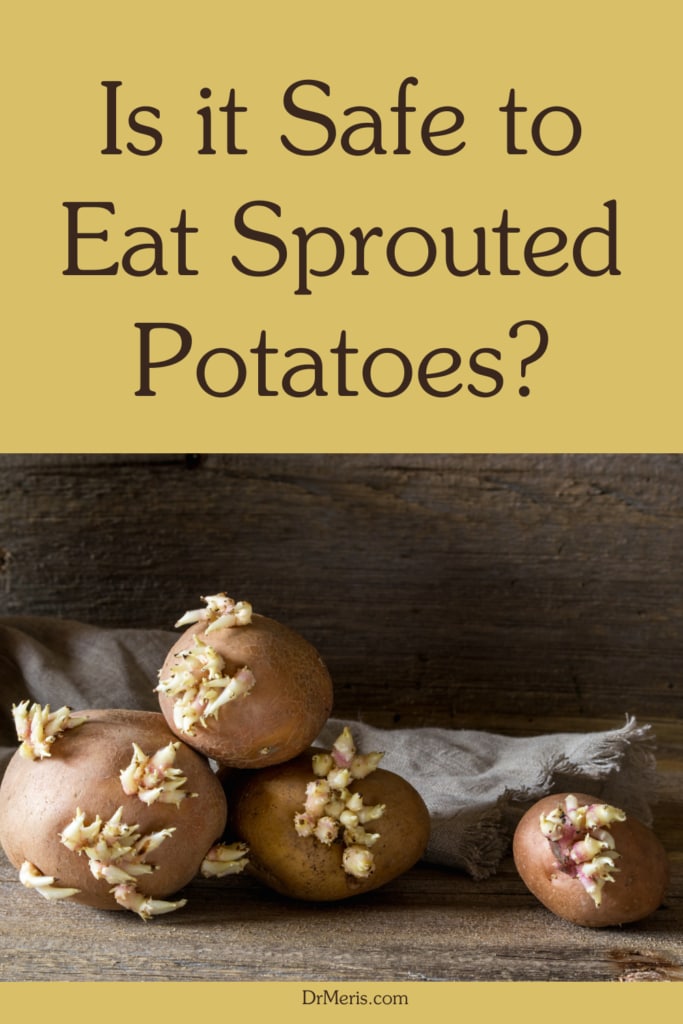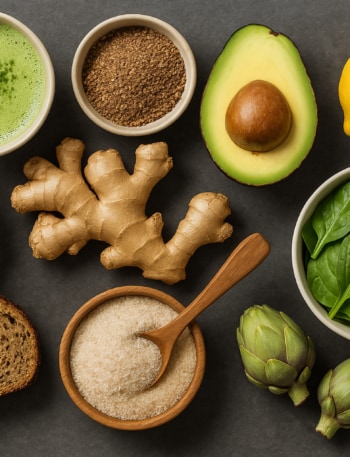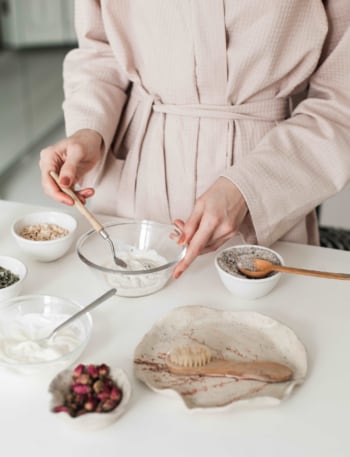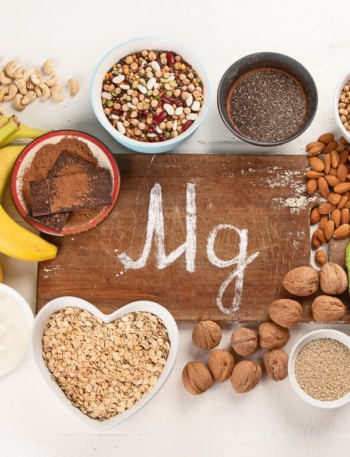If you leave potatoes in storage for too long, they might start to sprout, and people get all confused about whether it’s okay to consume sprouted potatoes. On one side, a few believe that as long as the sprouts are cut off, sprouted potatoes are entirely edible.
But, a lot of people say that sprouted potatoes can make you really sick, cause food poisoning, and even be deadly.
So are sprouted potatoes dangerous to eat? Do we get sick from eating sprouted potatoes? Can we get food poisoning from bad potatoes? How do we know if potatoes are bad?
This article digs into the studies to figure out if it’s safe to eat potatoes that have sprouted.
You’ll also find answers related to this subject such as: Why do potatoes sprout in the first place? And how can we tell when they’ve gone too far?

Why do Potatoes Sprout?

Potatoes are a type of root vegetable that’s really starchy and comes from the Americas. They are the underground parts (tubers) of the plant Solanum tuberosum of the Solanaceae family.
Tubers store extra nutrients for the winter, turning them into energy and kicking off the sprouting process in spring.
Potatoes start growing new plants when they’re kept in a place around 68 degrees F. This temperature makes the plants believe it’s spring, so they begin to grow again. The little bumps you see on a sprouted potato are the beginning of new potato plants. If you plant these in the ground, they’ll grow into fresh potatoes.
Over time or due to poor storage, potatoes can develop sprouts and green spots, which may indicate spoilage. If there’s no sprouting, the green color suggests spoilage. If potatoes get too much light, they’ll also turn green, which means they’re making solanine too.
Also, when potatoes start sprouting, they start losing their nutrients because they’re turning into sugar. If you leave them alone, they’ll dry out and might not be safe to eat at all.

Are Sprouted Potatoes Safe to Eat?
Potatoes have two types of natural glycoalkaloids called solanine and chaconine. These are found in the whole potato, but you’ll find most of them in the eyes, green parts, and sprouts.
Glycoalkaloids are natural substances found in the Solanaceae plant family, which has plants like potatoes, tomatoes, and eggplants.1
In small quantities, glycoalkaloids might provide certain health advantages, such as antifungal, antiviral, antitumor, and properties.1 However, they can turn harmful when consumed in large quantities
What happens if I Eat Sprouted Potatoes?
When a potato starts to sprout, the level of glycoalkaloids it contains starts to increase. As a result, eating potatoes that have begun to sprout can result in you taking in too much of these substances. Symptoms usually show up within a couple of hours to a day after eating the sprouted potatoes.
At lower levels, taking in too many glycoalkaloids usually results in symptoms like vomiting, diarrhea, and stomach cramps. In higher doses, they can lead to low blood pressure, an increased heart rate, fever, headaches, confusion, and in rare cases, even death.1,2
Additionally, a few minor research studies indicate that consuming sprouted potatoes while pregnant could potentially raise the likelihood of birth abnormalities. 4,5
How to Keep Potatoes Safe to Eat

Potatoes contain high levels of glycoalkaloids in their leaves, flowers, eyes, and sprouts. Besides sprouting, signs like physical damage, greening, and a bitter flavor indicate a significant increase in glycoalkaloid levels.1 Therefore, removing the sprouts, eyes, green skin, and damaged areas can lower your exposure to toxins.
Moreover, peeling and frying potatoes might decrease glycoalkaloid content — though boiling, baking, and microwaving seem to have minimal impact.1,5 However, it’s still not clear if these methods are enough to consistently and effectively protect you from glycoalkaloid poisoning.
The best way to stay safe is to just throw out any potatoes with green spots or sprouts. But, if you do spot any sprouts or green areas, you can try to cut them off with a sharp knife and still cook the rest of the potato—just be aware that this isn’t the best idea.
You really need to be extra careful if you’re going to eat potatoes with the skin on all the time, since that’s where the bad stuff is.
How to Keep Potatoes From Sprouting?
While it might be tempting to buy a big bag of potatoes, get only what you need to avoid them going bad. If you end up with extras, store them in a cool, dry, dark spot.
Some believe that potatoes and onions shouldn’t be kept together since they give off gases that make potatoes sprout faster. But there’s no real proof that this actually happens.
Keep your potatoes in a cool, dark, and well-ventilated spot, like a pantry or cabinet. Stay away from high heat, kitchen gadgets, and direct sunlight—in other words, your kitchen counter might not be the best place for your potatoes. Too much light makes the skin turn green because of the solanine.
It’s also important to note that you shouldn’t put potatoes in the fridge or freezer until you’re ready to cook them, unless you’ve already cooked them a bit. Lower temperatures make the potato’s starch turn into sugar, which makes them taste sweet and change color when cooked.
And, remember to wait to wash your potatoes until you’re ready to cook them, since any moisture could lead to them going bad sooner.
Can you eat sprouted potatoes? Sure, as long as they’re still solid, have tiny sprouts, and don’t look wrinkled or dried out. Just make sure to chop off the sprouts and any spots that feel soft. But, there’s still a bit of a risk. If your potato is all sprouted and looks shriveled, it’s probably not good anymore. Just throw it away. You should never eat potato sprouts.

Summary
Potatoes that have begun to sprout have elevated amounts of glycoalkaloids, which can be harmful to humans if consumed in large quantities.
Health issues associated with the consumption of sprouted potatoes include gastrointestinal discomfort, issues with the heart and nervous system, and, in extreme situations, even fatalities.
Eating sprouted potatoes while pregnant could potentially lead to an increased risk of birth defects.
Removing the sprouts, eyes, green areas, and damaged parts of a potato, as well as frying it, might lower the glycoalkaloid content, though further studies are required. In the meantime, it might be wise to avoid eating sprouted or green potatoes.
Keeping whole, dry potatoes in a cool, dry, dark area can help decrease the chances of sprouting. It’s advisable to not keep large quantities of potatoes and to store them away from onions.
Related Articles:
Raw Vs. Pasteurized Milk: Risks and Benefits
How to Pasteurize Milk at Home?
Refereneces
1. Saranraj, P., Sudhanshu, S., B., Ramesh C., R. (2019). Traditional Foods From Tropical Root and Tuber Crops: Innovations and Challenges, Charis M. Galanakis, Innovations in Traditional Foods, Woodhead Publishing, Pages 159-191. https://doi.org/10.1016/B978-0-12-814887-7.00007-1
2. Al Masaoud, F. S., Alharbi, A., Behir, M. M., Siddiqui, A. F., Al-Murayeh, L. M., Al Dail, A., & Siddiqui, R. (2022). A challenging case of suspected solanine toxicity in an eleven-year-old Saudi boy. Journal of family medicine and primary care, 11(7), 4039–4041. https://doi.org/10.4103/jfmpc.jfmpc_1159_21
3. Ni, W., Tian, T., Zhang, L., Li, Z., Wang, L., & Ren, A. (2018). Maternal periconceptional consumption of sprouted potato and risks of neural tube defects and orofacial clefts. Nutrition journal, 17(1), 112. https://doi.org/10.1186/s12937-018-0420-4
4. Ulman, C., Taneli, F., Oksel, F., & Hakerlerler, H. (2005). Zinc-deficient sprouting blight potatoes and their possible relation with neural tube defects. Cell biochemistry and function, 23(1), 69–72. https://doi.org/10.1002/cbf.1172
5. Friedman M. (2006). Potato glycoalkaloids and metabolites: roles in the plant and in the diet. Journal of agricultural and food chemistry, 54(23), 8655–8681. https://doi.org/10.1021/jf061471t
Sign Up for Our Email List
Get our latest articles, healthy recipes, tips, and exclusive deals delivered straight to your inbox with our newsletter.
We won't send you spam. Unsubscribe at any time.








